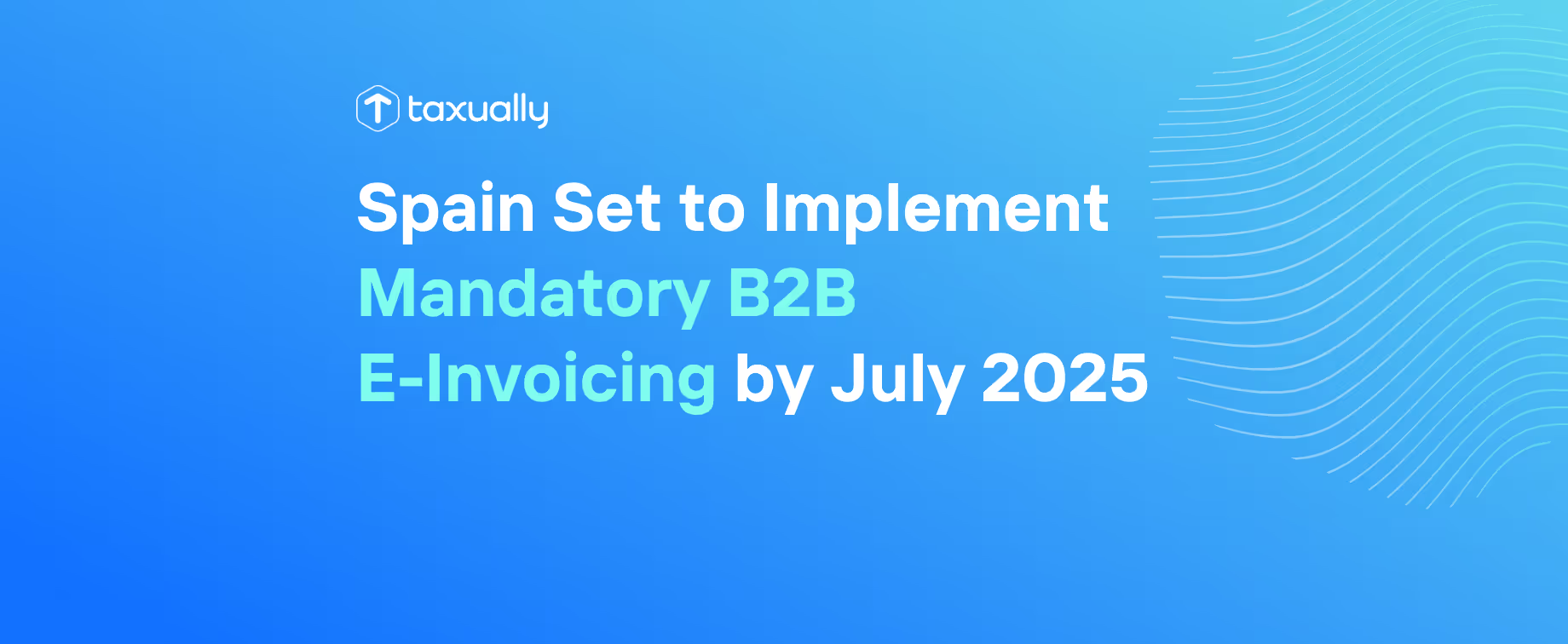Key takeaways
- Spain plans to introduce mandatory e-invoicing for B2B transactions starting July 2025, pending final approval.
- The initiative aligns with Spain’s broader digitalization and efficiency goals while reducing paper use.
- Legislation approval is expected in May 2024, with a minimum 12-month notice before implementation.
- The rollout will occur in two phases: large taxpayers first (turnover above €8 million) in 2025, and others by 2026.
- Technical and logistical challenges may delay the launch beyond mid-2025.
- The European Commission has endorsed Spain’s plan, suggesting improvements to digital signature and invoice seal requirements.
- Certified electronic invoices will also be required from July 1, 2025, complementing the new e-invoicing system.
Mandatory electronic invoicing (e-invoicing) for B2B transactions in Spain is expected to come into force in July 2025. This move is part of a broader trend towards digitalization of economic activities, aiming to enhance efficiency and reduce paper usage in business transactions.
Upcoming legislation on B2B e-invoicing in Spain
Spain is set to introduce mandatory e-invoicing for business-to-business (B2B) transactions, with the approval of the relevant legislation expected sometime in May 2024. According to plans, the law will require a minimum of 12 months’ notice before implementation, positioning the earliest possible start date on July 1, 2025, although there is a possibility it will be delayed due to the development of necessary technical specifications and the preparation time required for tax authorities, businesses, and software providers.
The European Commission (EC) recently endorsed Spain’s proposed mandatory e-invoicing legislation, which prioritizes electronic invoices over paper ones, deviating from the EU Directive. The EC's assessment confirmed that the Spanish initiative does not violate EU law, although it did suggest amendments regarding the digital signature and the inclusion of 'seals' for invoices issued by legal entities.
Despite this endorsement, Spain still awaits final approval from the EC to mandate e-invoicing. Complicating matters, the EU’s ViDA Digital Reporting Requirements, which propose eliminating the need for such approvals, are pending acceptance by EU Finance Ministers.
Implementation phases and challenges
Spain is planning a two-phase roll-out. The initial phase will affect large taxpayers (those with a turnover above €8 million), starting potentially in July 2025. All other taxpayers would be required to comply by 2026.
Implementation teams have already flagged potential challenges, indicating that launching before mid-2025 might be problematic due to technical and logistical issues. Furthermore, the EU’s plans for intra-community reporting and e-invoicing under the ViDA Digital Reporting Requirements have been postponed to at least 2030, which may influence Spain’s final decision on the technical requirements and specific launch dates of its own e-invoicing initiative.
Starting July 1, 2025, Spain will also be implementing certified electronic invoice obligations separately, ensuring a comprehensive framework for the digital transformation of financial reporting within the country.
Frequently asked questions
New Year's Day - 1/1/2024Memorial Day - 5/27/20244th of July - 7/4/2024Labor Day - 9/2/2024Thanksgiving Day - 11/28/2024Day after Thanksgiving - 11/29/2024Christmas Eve - 12/24/2024Christmas Day - 12/25/2024
When will mandatory B2B e-invoicing start in Spain?
The earliest expected start date is July 1, 2025, though delays are possible due to technical and regulatory preparations.
Who will be affected first by the new e-invoicing law?
The first phase will cover large taxpayers with annual turnover above €8 million, followed by all other businesses in 2026.
Why is Spain introducing mandatory e-invoicing?
The goal is to digitize economic transactions, increase efficiency, reduce paper use, and improve VAT compliance.
Has the European Commission approved Spain’s e-invoicing plan?
Yes, the European Commission endorsed the proposal but suggested changes to digital signature and invoice seal requirements.
What are the main challenges to implementation?
Key challenges include technical readiness, integration of systems, and alignment with the EU’s ViDA digital reporting framework.
How does this relate to the EU’s ViDA initiative?
Spain’s e-invoicing plan may be influenced by the EU’s postponed ViDA Digital Reporting Requirements, which now target 2030 for intra-community reporting.
What is the purpose of certified electronic invoices starting July 2025?
They form part of Spain’s comprehensive framework for digital financial reporting, ensuring authenticity and reliability in e-invoice management.



















